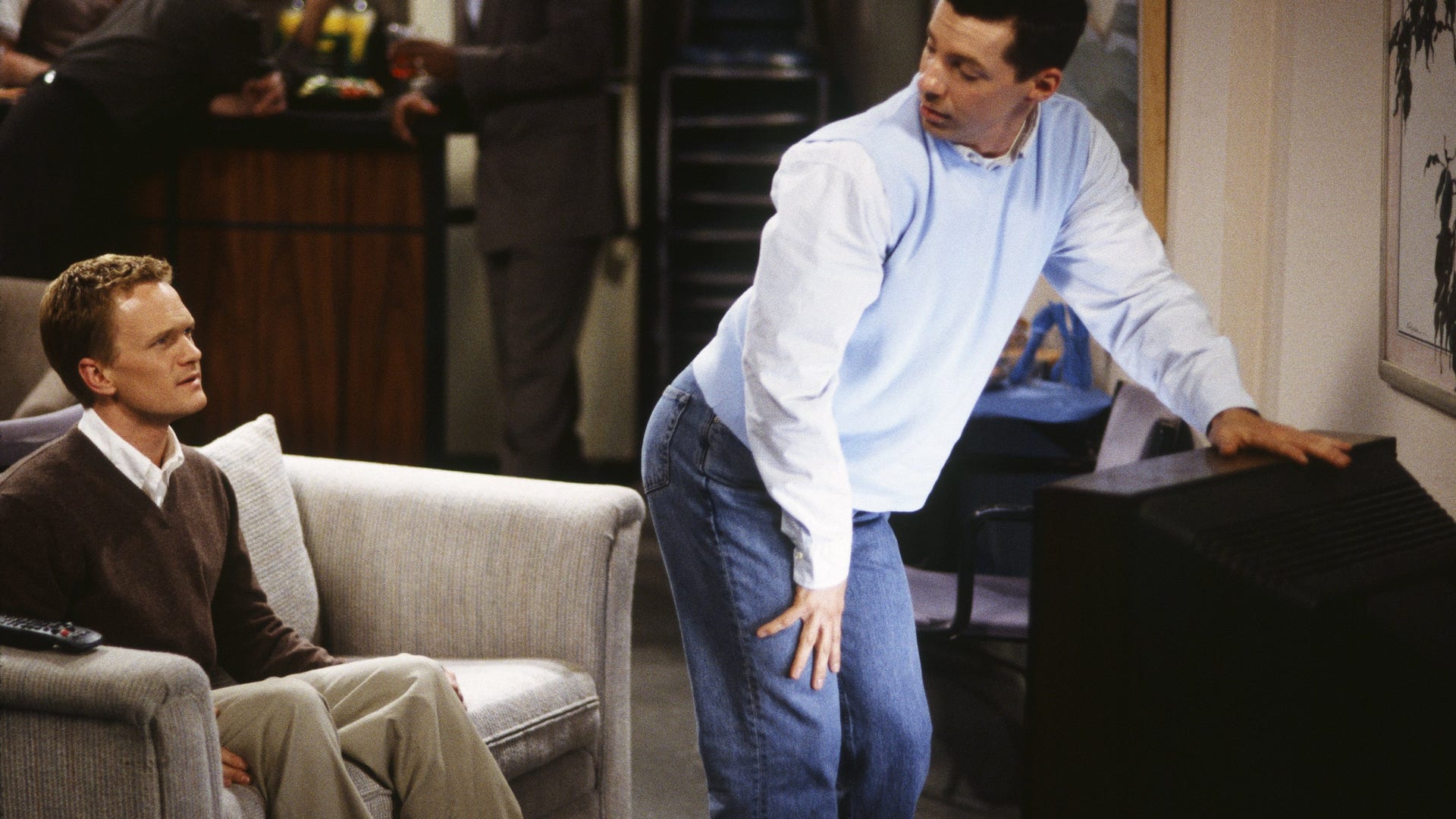Join or Sign In
Sign in to customize your TV listings
By joining TV Guide, you agree to our Terms of Use and acknowledge the data practices in our Privacy Policy.
LGBT Television Has Evolved... But What About Will & Grace?
Audiences have evolved... has the show's humor?
The first-look teaser for NBC's reboot of Will & Grace, which is set to premiere later this year, depicts star Eric McCormack trying to convince his titular other half Debra Messing that the revival is a good idea. "What if something fundamental has changed?" she protests, before acquiescing.
Her hypothetical hits the nail on the head -- but it's not the chemistry among the actors that's cause for concern. The hurdle Will & Grace 2.0 needs to overcome if it's going to be a hit this time around is that viewers who will tune into the show this fall are coming from a culture that is fundamentally different than it was in 1998, when the original series premiered, particularly when it comes to the depiction and perception of LGBT people.
When Will & Grace debuted, it brought queer culture -- or at least a version of it -- to mainstream America. The show's entire conceit, and much of its humor, fell into two camps: "Gays, they're just like us!" and "Aren't gay men hilarious?" In the former was Will Truman (McCormack, a straight actor), the buttoned-up, mostly "straight-acting" gay guy: lawyer by day; out-and-proud Barry Manilow superfan when he's out of the office. And then there was Jack McFarland (Sean Hayes, an openly gay actor), a nelly queen and Will's best friend, whose sassy one-liners were and remain the source of the show's biggest laughs.
NBC is poised to take back Thursday night's with Will & Grace, This Is Us

At the same time, the show does deserve credit for at least dampening homophobia among large swaths of its audience (even as it was arguably morphing that homophobia into a form of fetishism). No less than then-Vice President Joe Biden, speaking in 2012, credited the show with changing American attitudes towards same-sex marriage. "I think Will & Grace did more to educate the American public more than almost anything anybody has done so far," Biden said on NBC's Meet the Press. "People fear that which is different. Now they're beginning to understand."
And clearly, the stars and creators of Will & Grace have politics at the forefront of their minds: the revival was borne out of a short campaign ad for Hillary Clinton that reunited the original foursome.
But the Will & Grace reboot faces the challenging task of sustaining the type of humor that made it a hit two decades ago, while also adapting its tone to not only match current viewer attitudes, but also make the show not feel outdated when compared to more recent queer-friendly programming likeModern Family, Transparentand HBO's Looking. It's not an enviable position to be in. Today's LGBT-themed shows have, for the most part, built entire narratives around a nuanced view of sexuality and queer lifestyles, one in which a character's sexual orientation is rarely if ever used as a punchline in and of itself.
Add Will & Grace to your Watchlist now!
On Modern Family, for example, while the characters of Mitch (Jesse Tyler Ferguson) and Cam (Eric Stonestreet) -- a married gay couple -- do adhere to a number of gay stereotypes, they often acknowledge this fact to themselves and each other. Thus, the audience is encouraged to laugh with them. Jack, on the other hand, never seems to be in on the joke.
To be sure, Jack did become a fully-realized character in later seasons when he became a father. And undoubtedly, there were and are a number of gay male viewers who will see themselves in Jack. Being represented in pop culture is undeniably a positive thing, and should be seen as such. But unlike shows such as Queer as Folk, RuPaul's Drag Race and, to a certain extent, Looking, which are targeted primarily towards gay viewers, Will & Grace was and is very intentionally peddled to a straight audience. And if the goal is to portray gay characters as human beings, rather than otherizing them into caricatures, there are better ways to go about it.
If the teaser, which NBC debuted as part of the network's upfronts presentation earlier this week, is any indication, while the show's references have evolved, the style of humor hasn't. Jack's appearance in the five-minute preview is punctuated by a reference to advertising Will's apartment on "Air B on B" ("Boy on boy"), followed by him instructing a young, attractive and seemingly oblivious potential tenant to "take off your clothes and sit in the hallway."
Of course, there are several pockets of the country that are still incredibly homophobic. It's entirely possible that the show will use its beloved characters as a way to illuminate and criticize views and policies that put LGBT rights at risk. But if it's going to have viewers on which to impart those views, Will & Grace is going to have to aim higher in order to connect with a modern audience that's now used to more nuanced portrayals.
Will & Grace debuts Thursdays at 8/7c this Fall on NBC.
